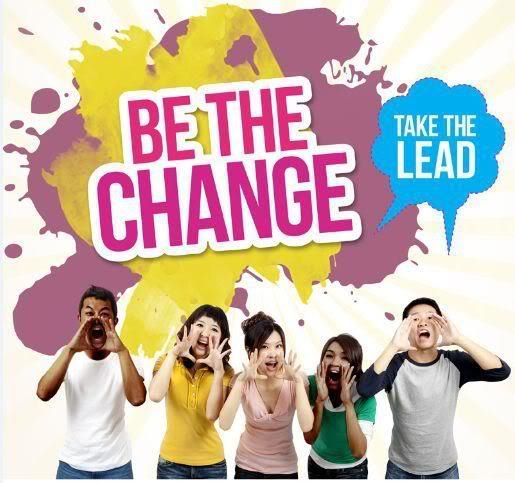Min Cheong

In an environment of restless uncertainty where the word “change” has been tossed around more than loose coins in a politician’s pocket, a diverse group of 24 young Singaporeans have come together to define and actualise their own concept of vicissitude – an initiative premised upon the provision of a platform on which local youth will be able to contribute to the moulding of the nation through ideas and innovation.
Motivationally branded Be The Change!, the programme promises to empower individuals aged 15-35 to translate their aspirations into reality and will be managed by a Youth Organising Committee (YOC), comprising the coterie of 24. The YOC, headed by Mr Soh Yida, a second-year Political Science student at the National University of Singapore, will work closely with the Ministry of Community Development, Youth and Sports (MCYS) as well as the National Youth Council (NYC) to engage young people and proffer the necessary resources for their endeavours.
Sparing no effort to establish open channels of communication with the public, the YOC has already set up a website, Facebook page and Twitter account to spread the word and garner feedback on their pet project. However, the real engine of discourse will be the “unconferences” – participant-driven meetings within which agendas are steered in the direction chosen by those present.
With the first unconference slated to be held at the official launch of Be The Change! (24th September 2011 at 2.30pm in *SCAPE Warehouse), hopes are high that it will indeed as expected prove instrumental in encouraging the robust germination and cross-pollination of ideas for the generation of balanced outcomes/solutions.
Additionally, the launch marks the commencement of an inaugural triple-tiered exercise aimed at galvanising a target figure of at least 5000 youths to collectively work towards manifesting the Be The Change! dream.
During the first phase (24th Sep – 12 Nov 2011), participants will share their views, under the categories Live, Work, Learn, Play and Give, on what is likely to augment the country’s development. Anteceding the crowd-sourcing of sentiments is the second stage (Dec 2011 – Mar 2012) within which five 25-member workgroups, chaired by youth community leaders, will analyse the feasibility of suggestions collated and propose recommendations to be presented to an appointed Steering Committee. Lastly (Apr 2012 onwards), youths will be invited to take the lead in implementing selected projects alongside their peers, government agencies and private-sector entities.
On initial observation, all of this does seem like quite the plan and in theory, Be The Change! appears capable of delivering results in a manner which can be described as pleasantly predictable. However, the translation of aspiration to reality would probably be less seamless than promulgated.
The main impediment to the success and sustainability of this otherwise extremely commendable initiative is liable to materialise in the form of poor public perception of the affiliation between the YOC, MCYS and NYC. A large proportion of youth already possess pervasive scepticism towards the establishment or are deeply disenchanted with the state’s administration and are not likely to embrace the notion of collaborating with ministries and statutory boards straight off.
Despite earnest assurances that Be The Change! is and always will be an independent enterprise, it is difficult to ignore the fact that MCYS and NYC will no doubt flex their discretionary muscles by means of dispensing or withholding funding, which the YOC appears to be reliant on to a fairly significant extent. As such, the ability of Be The Change! to see slightly more controversial projects (that are typically essential for societal transformation) through and the matter of MCYS and NYC getting on board as permanent partners rather than ad-hoc associates have to be called into question.
Naturally, this also raises the concern as to whether Be The Change! might eventually devolve into a de facto coordinator of programmes for MCYS and NYC more than an autonomous agent for youth-inspired societal progress. If that happens or is even just perceived to have taken place, youths seeking endorsement and the tools to implement their conceptions will understandably be more inclined to look elsewhere and adopt a more self-reliant approach to execution, which would effectively challenge the rationale for Be The Change!’s existence.
However, all is not lost. For Be The Change! to win the role it set out to play and perform its part convincingly, the YOC will right now have to flip the script and change the minds of the very people they have in mind to prop up before moving on to the first act.
Most importantly, members of Be The Change! must be absolutely committed to the vow of independence made by committee representatives, which could mean making difficult but wise decisions to best uphold the intended cause. Else, the change born of this source might very well not make all that much difference.


Thanks Min Cheong for attending the Pre-Launch Media Briefing and helping to share about our Be The Change initiative. Hope you and your friends come and join in some of our sessions. Can register at takepart.bethechange.sg
You’re welcome, Yi Da! Thanks so much for inviting NAR to the media briefing. Very impressed by the enthusiasm you and your team have for your shared cause. Here’s wishing the lot of you all the best!